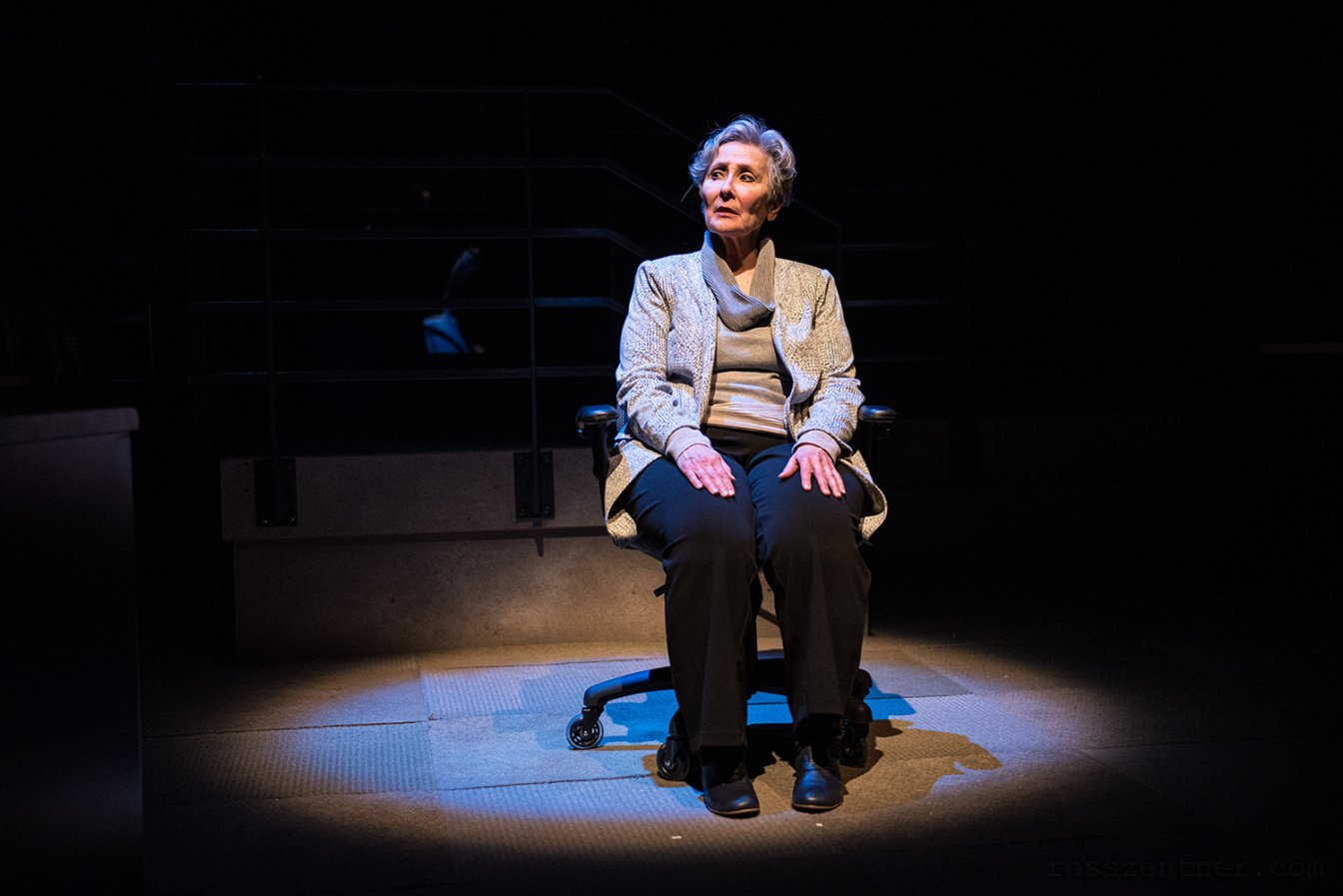Russian Troll Farm is a dark comedy where tense, audible discomfort is followed by laughter after every punch line.
But what else can you expect from a play where “The Office” meets the Russian social media trolls of the 2016 elections?
Sarah Gancher’s masterpiece follows the Internet Research Agency, a real government body in St. Petersburg, Russia that was responsible for 20% of American political conversation in 2016. According to Timothy Snyder’s “The Road to Unfreedom,” these bots stirred discussion, rallies and votes that contributed to Trump’s presidential candidacy.
The question Gancher asks us: “How could this happen?”
Directed by Jen Uphoff Gray in Forward Theater’s production, the play starts with a haunting echo of this question. Throughout the performance, we hear the answer in real election newscasts over Russian classical music — a tradition during exchanges of political power. The stage is transformed with Brutalist Soviet architecture, imitating the agency as its inhabitants imitate its agents. We’re introduced to five characters, all with their own justifications for working to create conflict in America.
While it’s a fictional account of what could’ve happened at the IRA, the group’s dynamics include very real office interactions. We see relationships, pranks, harassment and work jargon. The twist is that their work invokes chaos on American social media, swelling fake news stories and argument hotspots. Meanwhile, they all try to come to terms with the morality of it all.
“I think what we do is evil, but I still want to do a good job,” one character said.
But even as they work against the U.S., Gancher explores how they may have reacted to America’s coveted free speech. Russia has strict censorship laws that can put its citizens in danger if they speak out. “Russian Troll Farm” predicts that some members may have used these fake accounts as outlets to express their own anger over Russian policies. While the employees are shitposting about American politics and presidential candidates, the moment the Russian characters question their government, there are dire consequences.
Let’s return to Gancher’s question: how could this happen? What made so many Americans susceptible to fake populism created by trolls? “Russian Troll Farm” argues the reason is that people crave stories more than the truth, stories that align with them and “see” them.
“We may live our lives within a story, but every one of those stories is a fiction, reflecting our hopes and dreams,” one character said.
Regardless of our beliefs or who we are, we want to be seen. Free speech gives us that opportunity — for better or worse.
With the play and its prelecture, Forward Theater brings this relevant conversation to Madison in the past and present age of political crisis. During the election, Wisconsin was a primary swing state that changed its course, and the IRA leans into its targeted posts to swing key voters. The audience also can’t help but acknowledge the play’s relevance to the war in Ukraine and Russia’s expanded propaganda campaign.
Right now, “Russian Troll Farm” is crucial. Its message is crucial. It reminds us that the enemy isn’t Russian. It’s propaganda; it’s corrupt power; it’s free speech; it’s us. We fight for our right to speak because it’s our identity. Corrupt power uses this to manipulate us into action, whether it’s a government agency, an erroneous leader or an irritating internet troll.
In that regard, “Russian Troll Farm” reminds us that we are responsible for the stories we hear and the stories we tell. And moreover, there is power in the words spoken: in an election, in a war, on the internet, and in a conversation.


